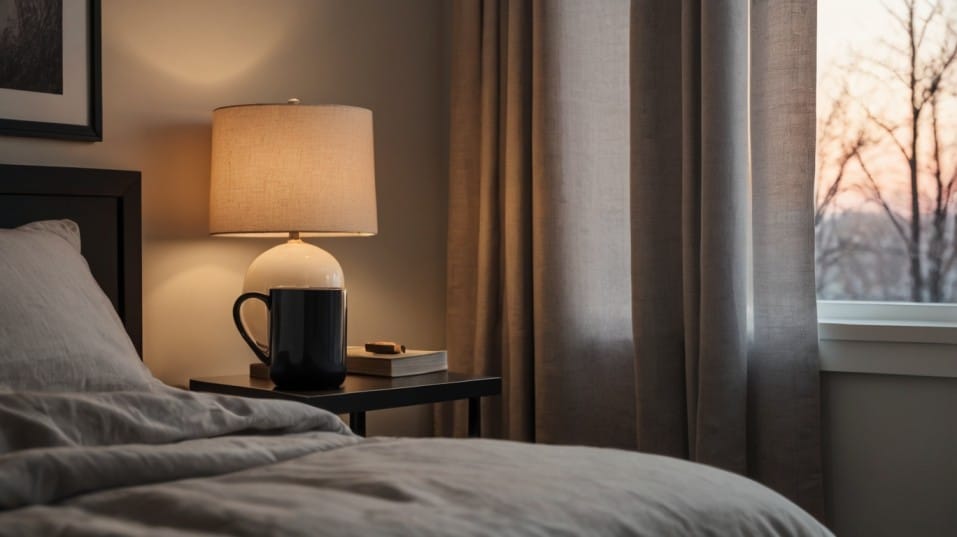Could Your Caffeine Habit Be Disguising Sleep Issues?
Think caffeine gives you energy? Think again. Learn how to spot hidden sleep issues and unlock lasting energy without the daily crash.

What if your morning coffee isn’t waking you up—but covering something up? If you can’t function without caffeine, it’s worth asking whether your energy issue is actually a sleep issue.
You’re not alone in reaching for that daily boost, but when caffeine becomes the norm just to feel baseline, something’s off.
The fix isn’t more coffee—it’s better sleep. And once that’s dialed in, you’ll discover a level of energy you don’t have to borrow.
The Performance Trap
Caffeine is everywhere for a reason. It works. It tightens your focus, lifts your mood, and fights off mental fatigue. But here’s the issue: caffeine doesn’t create energy—it just blunts your awareness of being tired.
The science is simple. Caffeine blocks adenosine, the chemical that builds in your brain while you’re awake and makes you sleepy. But it doesn’t stop that buildup.
It just masks the effects. When the caffeine wears off, that sleep pressure crashes back, harder than before. That’s when you reach for another cup—and the cycle repeats.
This routine isn’t just unsustainable—it’s misleading. You feel wired but worn out. Alert but unfocused. Like your brain’s running on fumes while pretending it’s in overdrive.

Sleep Debt Doesn’t Shout—It Whispers
One of the sneakiest things about poor sleep is how it convinces you it’s not the problem. Sleep debt accumulates slowly. A few short nights don’t knock you out right away. You adapt. You power through.
But the cost shows up in small, hard-to-pin-down ways:
- You get irritable faster.
- Your memory gets patchy.
- Work takes longer.
- Training feels off.
And because caffeine props you up just enough to function, you don’t connect those dots. You just assume that this is your new “normal.”
Here’s the truth: if you’ve been masking fatigue with caffeine for weeks (or months), you probably have no idea what fully rested even feels like.
Taking Back Control of Your Energy
Let’s be clear—this isn’t a call to quit caffeine. Used well, caffeine can be a powerful tool. The goal is to stop using it as a crutch and start using it with intention.
Start with timing
Don’t slam coffee the minute you wake up. Your body naturally releases cortisol—your built-in wake-up hormone—about 30 to 45 minutes after rising. Caffeine at that moment can blunt your body’s own alertness response.
Let the system run on its own first. Hold off that first cup for at least 60 to 90 minutes after waking. You’ll likely feel more energized than expected.
Set a caffeine cutoff
Even if you feel fine after an afternoon latte, your sleep may not be. Caffeine’s half-life is about 5–6 hours, but for some people, traces linger much longer.
That means your 3 p.m. pick-me-up could still be tapping the brakes on your sleep at 10. A good rule of thumb? Set a hard stop by 2 p.m. Earlier if sleep has felt restless or light.
Audit your dependency
Try this: go one morning without caffeine and pay attention—not to withdrawal symptoms, but to your baseline. Energy, focus, motivation.
Notice what changes. This isn’t a detox. It’s data. If you’re running on empty without caffeine, that’s a red flag. You’re not under-caffeinated. You’re under-recovered.
Fix Sleep First—Caffeine Follows
If you want to feel better during the day, start at night. That doesn’t mean overhauling your life. Small shifts lead to big gains.
Wake up at the same time daily
Yes, even on weekends. Your circadian rhythm craves stability. Regular wake-up times help your body lock in deeper, more efficient sleep cycles.
Treat your bedroom like a sleep tool
Make it dark. Blackout curtains or a good sleep mask. Keep it cool—around 65°F is ideal for most people. Cut blue light from screens in the hour before bed. A calm brain falls asleep faster and stays asleep longer.
Skip the “just one more episode”
Netflix will still be there tomorrow. Your recovery won’t. Start your wind-down 30 to 60 minutes before bed with low light, no work talk, and minimal stimulation. This isn’t about being rigid—it’s about being ready for real rest.
The Payoff: Energy You Don’t Have to Chase
Once you start prioritizing sleep, something unexpected happens. You stop needing caffeine to feel human. You start using it to boost an already good day—not to salvage a bad one.
Sleep becomes your foundation. It improves recovery, sharpens mental clarity, and boosts metabolic function. You move through your day with more presence, less effort.
No more reaching for coffee just to break through the fog. The best part? You won’t have to guess if it’s working. You’ll feel it.
Final Thoughts
Caffeine isn’t the enemy—it’s a tool. But if you rely on it to feel okay, it’s time to look closer. Your body is built for high performance, but only when you give it the recovery it needs.
Take the next step. Push that first cup later. Lock in your sleep routine. Protect your nights, and your days will follow.
Start now. Stop masking fatigue and start fueling real energy. The difference won’t just change your mornings—it’ll level up your life.




